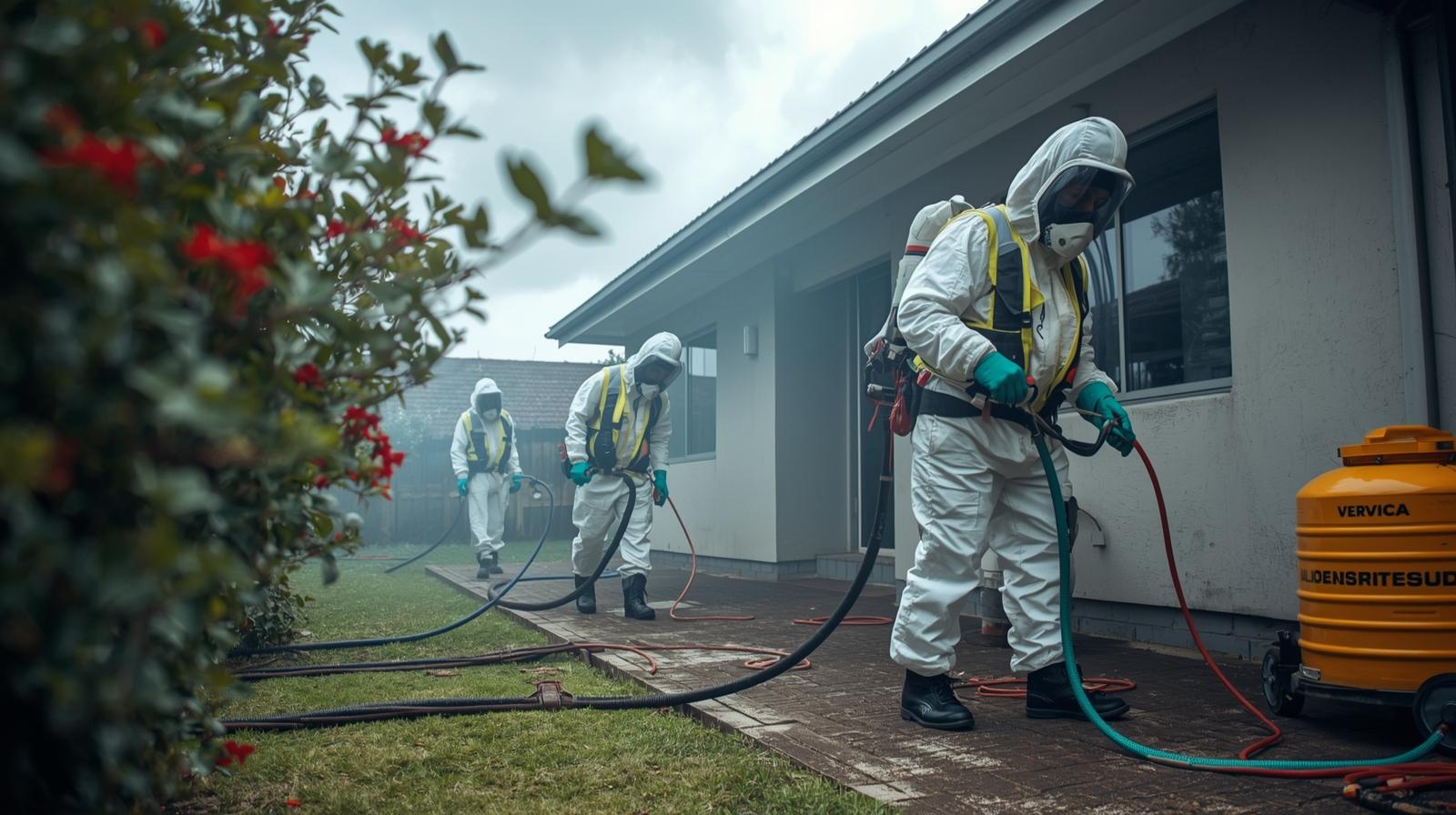Congratulations! You’ve just collected the keys to your new home in Nairobi. The mortgage paperwork is signed, the deposit is paid, and you’re officially a homeowner. That feeling of achievement is incredible – you’ve made it! The big financial hurdles are behind you, and now it’s time to settle into your new space and enjoy the fruits of your hard work.
But here’s what every seasoned homeowner in Nairobi knows: while the mortgage and deposit were the mountains you prepared to climb, it’s the smaller, recurring service costs that will quietly chip away at your monthly budget if you’re not prepared. These “invisible” expenses are the difference between homeownership being a joy or a constant financial surprise. This comprehensive checklist will arm you with the knowledge to budget for the essential annual and monthly services that guarantee your family’s safety, maintain hygiene standards, and protect your property’s value.
1. Mandatory Pest Control & Termite Management
Why it’s easily forgotten: Most new homeowners focus on the visible aspects of their property – fresh paint, new furniture, landscaping. Pest control feels like something you’ll “deal with later” or “only if there’s a problem.”
The Nairobi reality: In our tropical climate, termites are not a possibility – they’re an inevitability. These silent destroyers are particularly aggressive in areas with wooden roofing, timber floors, and older construction materials common throughout Nairobi and satellite towns like Kiambu, Machakos, and Kajiado. The structural damage from untreated termite infestations can cost hundreds of thousands of shillings in roof and foundation repairs.
The smart approach: Prevention is exponentially cheaper than cure. Rather than waiting for visible damage (which means the infestation is already advanced), the first step should be contacting Pestraid Kenya for a thorough initial inspection and a customised annual treatment plan. Their expert team understands the specific pest challenges facing Nairobi homeowners and will create a proactive maintenance schedule that protects your investment year-round.
Budget allocation: KSh 15,000-30,000 annually for comprehensive pest control and termite prevention services.

2. Solid Waste & Garbage Collection Fees
Why it’s easily forgotten: If you’ve been renting, garbage collection was likely included in your monthly rent or handled automatically by your landlord.
The Nairobi context: As a homeowner, you’re now responsible for arranging your own waste collection services. Nairobi County requires residents to use registered private waste collectors, and this service is separate from any estate management fees you might pay. The County’s own collection service is limited and unreliable in many residential areas.
What to expect: Most registered collectors charge between KSh 800-2,000 monthly depending on your location and the size of your household. Some estates negotiate group rates, but standalone homes need individual arrangements.
Pro tip: Confirm your waste collector is licensed by Nairobi County to avoid potential penalties and ensure reliable service.

3. Security Services (Askari/Alarm Response)
Why it’s easily forgotten: The excitement of homeownership can overshadow the practical reality that your property now needs round-the-clock protection.
The Nairobi necessity: Security isn’t optional in Nairobi – it’s a fundamental requirement. If you’ve purchased a standalone home, you’ll need to budget for a reliable askari or night watchman. If you’re in a gated estate, security fees are mandatory and typically increase annually.
Budget breakdown:
- Standalone homes: KSh 15,000-25,000 monthly for a reliable askari
- Gated estates: KSh 2,000-8,000 monthly security levy (varies by estate amenities)
- Alarm monitoring services: KSh 2,500-5,000 monthly for professional response
Important note: These costs are non-negotiable for maintaining your family’s safety and your insurance requirements.

4. Septic Tank Exhaustion/Sewerage
Why it’s easily forgotten: It’s literally underground and out of sight, making it easy to ignore until there’s an emergency.
The satellite towns reality: Many homes in areas like Kitengela, Ruiru, Thika, and parts of Kiambu rely on septic systems rather than connection to the main Nairobi sewer line. A full septic tank is both a health hazard and a legal issue that requires immediate professional attention.
The financial impact: Septic tank exhaustion services cost KSh 8,000-15,000 per session, and most household systems require exhaustion every 2-3 years depending on usage and tank size. This creates a significant lump sum expense that catches many homeowners off guard.
Smart budgeting: Set aside KSh 300-500 monthly in a dedicated septic maintenance fund to avoid financial stress when exhaustion becomes necessary.

5. Property Rates (County Land Rates)
Why it’s easily forgotten: Coming from a rental background, many new homeowners aren’t familiar with direct taxation on property ownership.
The legal requirement: Nairobi County Government requires all property owners to pay annual land rates based on the assessed value of their property. This isn’t optional – it’s a legal obligation that comes with penalties for late payment.
What you’ll pay: Rates vary based on property value and location, typically ranging from KSh 3,000-25,000 annually for residential properties. High-value areas like Karen, Runda, and Lavington face higher assessments.
Critical timing: These rates must be paid by June 30th each year to avoid penalties that can double your bill.
6. Water Tank & Pump Maintenance
Why it’s easily forgotten: When the water flows, you don’t think about the infrastructure making it possible.
The Nairobi water reality: Almost every home in Nairobi requires water storage tanks and electric pumps to manage the city’s rationing schedule. This system needs regular maintenance to ensure clean, safe water supply and avoid costly emergency repairs.
Essential maintenance:
- Annual tank cleaning: KSh 3,000-8,000 (mandatory for hygiene)
- Pump servicing: KSh 2,000-5,000 annually
- Pump replacement: KSh 15,000-40,000 (every 5-8 years)
Health importance: Neglected water tanks can harbor bacteria and algae, creating serious health risks for your family.
7. Electrical/Plumbing Emergency Fund
Why it’s easily forgotten: These systems work invisibly until they don’t, and the failure always feels sudden.
The homeowner reality: Unlike renting, where you could call the landlord for burst pipes or electrical failures, you’re now responsible for all repairs and replacements. Circuit breakers fail, pipes burst, water heaters break down – usually at the most inconvenient times.
Smart financial strategy: Contribute KSh 3,000-5,000 monthly to a dedicated emergency repair fund. This seemingly small amount will save you from financial stress when your geyser stops working on a Sunday morning or when heavy rains cause electrical issues.
Average emergency costs:
- Burst pipe repairs: KSh 5,000-15,000
- Electrical circuit replacement: KSh 8,000-20,000
- Water heater replacement: KSh 15,000-45,000
Your Path to Prepared Homeownership
These seven recurring costs are not designed to scare you – they’re investments in your family’s comfort, safety, and your property’s long-term value. Every successful homeowner in Nairobi budgets for these services because they understand that proactive maintenance prevents expensive emergencies.
Take action today:
- Create a “Home Service Budget” spreadsheet with monthly contributions for each of these seven categories
- Start building your emergency funds immediately – even KSh 1,000 monthly makes a difference
- Research and connect with reliable service providers before you need them urgently
Most importantly: Don’t let termites chew through your investment. Make the first and most important call: Contact Pestraid Kenya today for a professional, no-obligation assessment of your new home’s pest control needs. Their expert team will create a customized protection plan that safeguards your property from day one.
Remember, prepared homeownership is confident homeownership. Share this checklist with fellow homeowners and help build a community of informed property owners across Nairobi!
Ready to protect your investment? Contact Pestraid Kenya for expert pest control services tailored to Nairobi homeowners.



